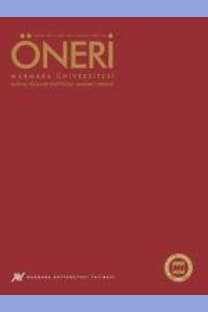POSTGRADUATE STUDENTS OF ENGINEERING IN THE CZECH REPUBLIC-THE FUTURE OF SCIENCE OR A DYING SPECIES?
Basic economic data about the Czech Republic present a picture of a relatively deep recession, especially in heavy industry, following the political changes in 1989. Growth did not start again until a few years ago, and even now the country is only approaching the level of GDP that it had at the beginning of the 1990s. In future the Czech Republic will need new highly qualified young people, both for academic institutions and for applied research and development. Especially in technical, information and natural Sciences, we can anticipate a need for tens of thousands of new PhD graduates in the next decade. The key question is whether highly specialized PhD courses and careers in Science are still attractive for some young people. The aim of our paper is to summarise the experience already gained and the measures put forward to improve the attractiveness of PhD studies, and to point out unsolved problems, in order to form a basis for future discussions.
Anahtar Kelimeler:
Eğitim, Lisansüstü Eğitim, Lisansüstü Öğrencileri, Mühendislik Öğrencileri, Lisansüstü Mühendislik Öğrencileri
POSTGRADUATE STUDENTS OF ENGINEERING IN THE CZECH REPUBLIC-THE FUTURE OF SCIENCE OR A DYING SPECIES?
Basic economic data about the Czech Republic present a picture of a relatively deep recession, especially in heavy industry, following the political changes in 1989. Growth did not start again until a few years ago, and even now the country is only approaching the level of GDP that it had at the beginning of the 1990s. In future the Czech Republic will need new highly qualified young people, both for academic institutions and for applied research and development. Especially in technical, information and natural Sciences, we can anticipate a need for tens of thousands of new PhD graduates in the next decade. The key question is whether highly specialized PhD courses and careers in Science are still attractive for some young people. The aim of our paper is to summarise the experience already gained and the measures put forward to improve the attractiveness of PhD studies, and to point out unsolved problems, in order to form a basis for future discussions.
Keywords:
Education, POSTGRADUATE Education, POSTGRADUATE STUDENTS, STUDENTS OF ENGINEERING, POSTGRADUATE STUDENTS OF ENGINEERING,
___
- EU, (2000): Towards a European Research Area, Communication from the Commission to the Council, the European Parliament, the Economic and Social Committee and the Committee of the Regions. European Communities, January 2000.
- GCEE, (1998): Global Congress on Engineering Education. Cracow, Poland, 6-11 September 1998.
- HN, (2001): Rocenka Hospodârskych novin 2001 (Yearbook of Economic News), Praha, Economia a.s., 2001.
- Musllek L. and Skoda L., (1997): Enrolment in applied mathematics and physics: problems due to social changes. International Conference “Justifıcation and Enrolment Problems in Education Involving Mathematics or Physics”. Roskilde (Denmark), 22-26 August 1997.
- Musılek L. and Mares J., (1998): Nuclear radiation and safety in the environment: reflections in the curricula at the FNSPE Czech Technical University (CTU) in Prague. Global Congress on Engineering Education. Cracow, Poland, 6-11 September 1998. Proceedings p. 436-440.
- VCR, (2000): Nârodnı politika vyzkumu a vyvoje Ceske republiky, Prıloha usnesenı vlâdy ze dne 5. ledna 2000, c . 16 (National Policy on Research and Development of the Czech Republic, Attachment to the Decision of the Government from 5 Januaıy 2000, No. 16)
- ISSN: 1300-0845
- Yayın Aralığı: Yılda 2 Sayı
- Başlangıç: 1994
- Yayıncı: Marmara Üniversitesi
Sayıdaki Diğer Makaleler
TOPLAM VERİMLİ BAKIM ve TOPLAM KALİTE YÖNETİMİ İLİŞKİSİ
AVRUPA PATENT SİSTEMİ İÇİNDE AVRUPA TOPLULUK PATENTİNİN YARATILMASI
IT - UNTERSTÜTZTES SUPPLY CHAIN MANAGEMENT
RESEARCH DEGREE EXAMINING - COMMON PRINCIPLES AND DIVERGENT PRACTICES
S.d. POWELL, H. GREEN, C. MCCAULEY, M. SHAW
PAZARA GİRİŞ YÖNTEMİ OLARAK FRANCHISING
TÜRKİYE’DE EKİM ALANI DARALAN BİR YAĞ BİTKİSİ:ASPİR
STARTING POSTGRADUATE EDUCATION AT A SMALL UNIVERSITY
AVRUPA BİRLİĞİNE GİRİŞ SÜRECİNDE YAŞANAN KRİZ ve BİR KRİZ YÖNETİMİ MODELİ
DOĞAL BOYAMACILIKTA KULLANILAN BOYARMADDE KAYNAKLARI ve MORDAN MADDELERİNİN BOYAMAYA ETKİSİ
EMPOWERING POSTGRADUATE STUDENTS THROUGH ONLINE CAREER MENTORING
